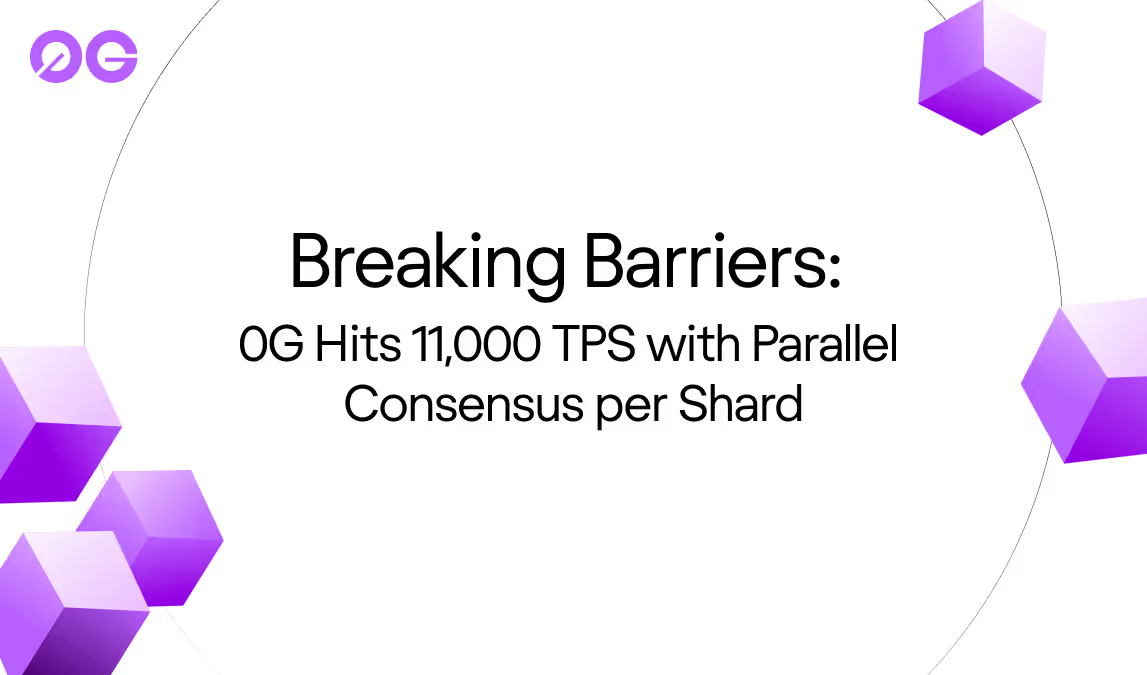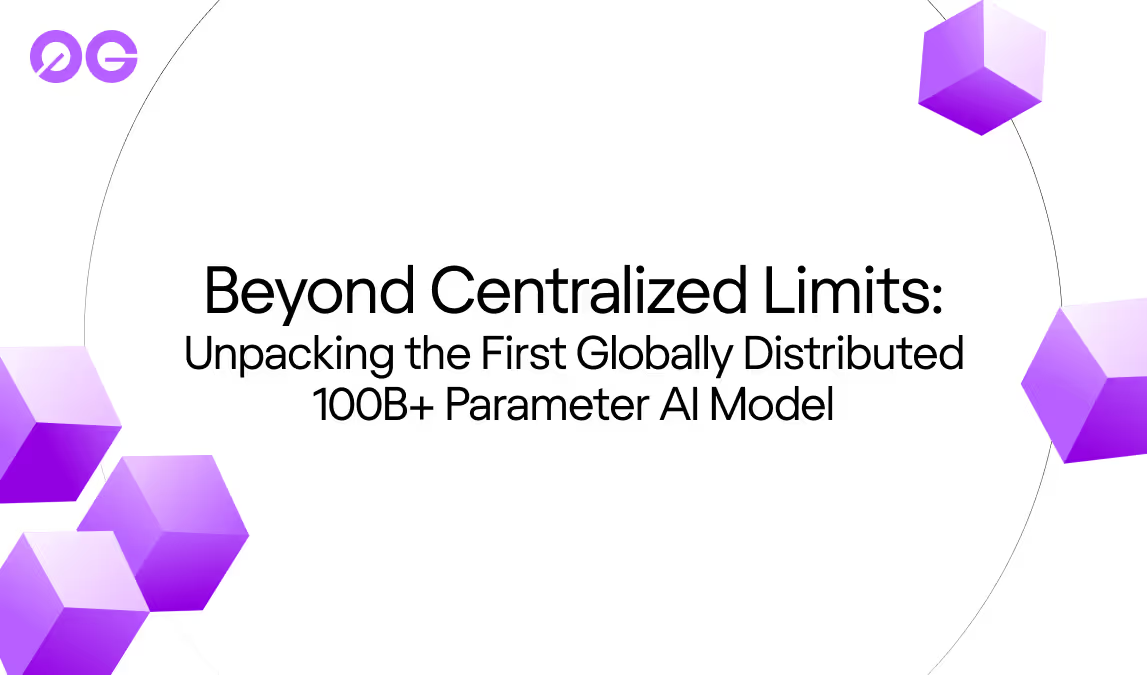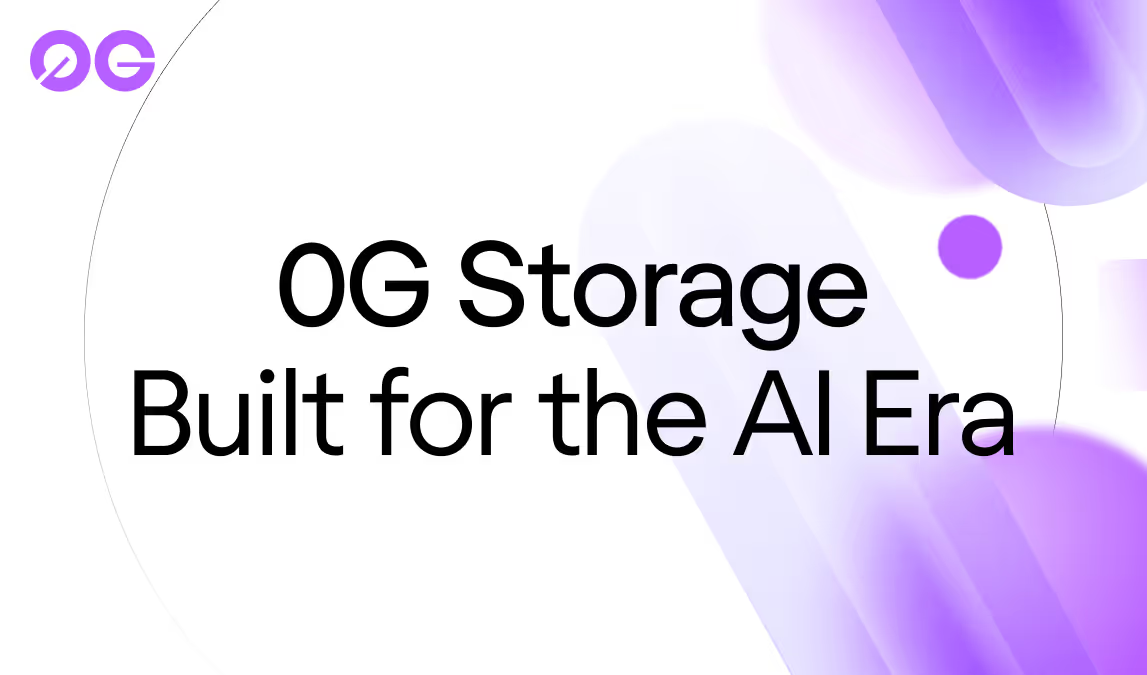

This Week in Onchain AI Ep. 1 Recap
Yesterday we launched This Week on Onchain AI, a new X Space series where we dive deep into the world of Decentralized AI (DeAI) with industry leaders.
In our first episode, Jax Dwyer and Elisha Owusu Akyaw led an insightful discussion on AI agents, open vs. closed-source AI, geopolitics, and how 0G is innovating at the forefront of DeAI infrastructure.
Here’s a recap of the biggest takeaways.
AI: The Open vs. Closed-Source Debate
Despite the connotation that names like “OpenAI” convey, the current AI landscape is dominated by closed-source models developed by major tech firms. Lately, many have been asking if this is truly the best approach for long-term growth in the sector.
Jax and Elisha started off the space by talking about the prominent LLMs currently available on the market, including ChatGPT, Copilot, Claude, and more—addressing the ongoing debate over open-source vs. closed-source AI. Here’s what they touched on:
- Open-source AI fosters transparency, accessibility, and innovation, allowing for broader contributions and community-driven improvements.
- Closed-source models, on the other hand, offer controlled environments with strict security measures.
- The key question: How do we get to full open-source AI?
Elisha: We are talking about accessibility. We're talking about control. We're talking about innovation and security… There's “open,” which means everyone can read the code, see the data, and understand how things work and not necessarily contribute. Then there’s the “open” that starts with that and also involves the contribution of the general public… Then there's closed source, where people are treating the software that they create as their property that they don't want to share. I'm on the side of open, but there are some good reasons and some good arguments on the other side, like the AI war that is currently going on with the U.S. vs. China.
The Future of AI Agents: Only Up from Here
One sentiment from the conversation stood out, articulated by Jax: the idea that “AI as we currently know it is the worst it will ever be.” That’s a bold way of saying that AI is evolving at an unprecedented pace, and the technology will only get better.
- The next wave of AI agents will be more autonomous, adaptive, and capable of personalizing experiences for users.
- These agents won’t just respond to prompts—they’ll be able to proactively complete tasks, make decisions, and optimize workflows in real-time.
- Blockchain-based AI, like what 0G is developing, could enable more trustless, verifiable, and secure AI agents in the future.
Jax: The AI agents we see in terms of their predictive capabilities, in terms of their ability to write on Twitter, they're only going to get better. And it's not linearly. They're not just going to step by step, by step, get a little better every single day—there's going to be big step functions. I don't know if you guys can remember this, but the difference in the GPT model 3.5 versus the 4.0 and some of the later models, is absolutely insane.
ChatGPT vs. Deepseek
With the recent buzz around Deepseek, an AI model claiming to rival ChatGPT while being cheaper and open-source, the conversation shifted to whether building high-quality AI models is becoming more accessible.
- Deepseek’s emergence suggests that affordable, open-source alternatives are gaining ground.
- But is building an AI model really that easy? The biggest barriers remain: compute power, data access, and funding.
Elisha: The Deepseek situation has opened up a very important conversation about the AI race and about what nation-states need to do to put their companies in a position where they're the most competitive and what nation-states themselves ought to do to be competitive.
Could the US Ban Foreign AI Models?
During the conversation about ChatGPT vs. Deepseek, Jax and Elisha shifted the topic to the AI race between nations. Specifically, the two addressed the fact that AI is growing beyond technology and becoming a geopolitical battleground.
Concerns over data privacy, cybersecurity, and adversarial AI attacks have led some to wonder whether the U.S. government could start restricting or banning AI models built in other countries.
- Fears include bad actors injecting malicious scripts into AI models, potentially exposing sensitive data or compromising security.
- If governments start restricting foreign AI models, what does that mean for global innovation and open-source AI?
- A key takeaway is that regulation and AI geopolitics could shape the future of AI access, especially for decentralized and permissionless systems.
Jax: I don't know if you guys have ever seen this meme where it's like, “me uploading the most controversial documents in my company into ChatGPT.” Well, one, know that a lot of employees will end up uploading sensitive documents into these LLMs, and two, they could be a huge risk factor in terms of injecting nefarious scripts to take data. People are probably already uploading their personal data there.
How Do We Create Sustainable Decentralized AI?
The conversation then shifted from governmental response to privacy and security to the potential benefits of decentralized AI in achieving these pillars. Jax and Elisha explored potential solutions, including:
- Alignment nodes for ensuring decentralized models align with ethics and security principles.
- 0G’s infrastructure and how it supports a decentralized AI ecosystem.
- The importance of economic incentives in keeping DeAI networks functional and secure.
Elisha: There are so many reasons why trusting the various (LLM developer) stakeholders could be an issue. I think that's exactly why the decentralized approach is important. For 0G, the AI alignment nodes ensure that no one is doing something crazy on-chain when it comes to AI.
0G Milestones
To close out, Jax and Elisha touched on their enjoyment of working in the weeds with 0G and being a part of its active and growing community. To highlight the current state of 0G affairs, Elish highlighted how:
- 0G’s AI Agent Day @ Consensus Hong Kong was a massive success, with standing room only for programming that brought together top minds in AI and blockchain.
- Something called AIverse, which Elisha told listeners to keep an eye out for on 0G
- And, of course, the big question: Will 0G be the first to successfully merge blockchain and AI? We’re certainly aiming for it.
Elisha: I think it's bold for any of us to say that this platform or that platform would play the biggest role in reaching AGI (Artificial General Intelligence). But I think it's important for us to build the ecosystems that nudge developers toward the right path and provide evidence and some sort of foundation of what the right thing ought to be.
Join the Conversation
Missed the space? Listen to the full recording here, and be sure to follow 0G on X and join our Discord for updates and announcements.






